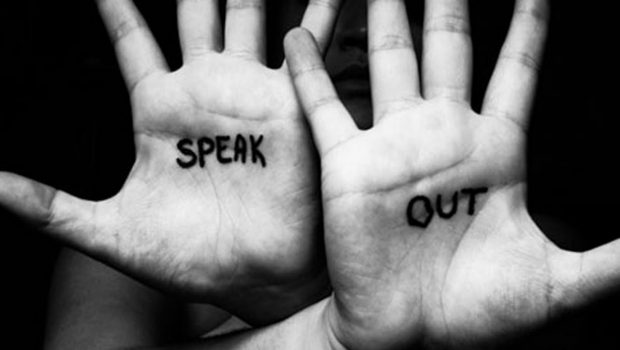Child Abuse in the Church: How to Handle It
I despise child abuse. It is sin. It is extremely damaging to children, physically and mentally. Child abuse wreaks havoc on our society by creating a cycle of abuse and causing various types of dysfunction in those abused. The moral abhorrence and negative consequences of child abuse cannot be overstated.
Sadly, child abuse occurs in the church far more often than is comfortable to admit. And as believers in Christ, we must know how to respond to this with the Gospel. And that includes responding to child abuse legally.
I am not a disinterested observer. I am a child care worker at a facility that is a member of the West Virginia Child Care Association. I work directly with children in state custody. I also have pastoral experience in dealing with reported abuse (although in that case it was an adult being abused). I say all of this so you know where I am coming from. I am not neutral. I am not disinterested. I am not simply a scholar sitting in my ivory tower speculating on the issue. I live it. I care for children as part of my job. I look abused children in the eye and tell them good night every evening I work.
With that said, there seems to be a debate about how churches should handle suspected or reported child abuse. As I see it, this “debate” stems from dual obligations: On one hand, churches and pastors must protect the children in their congregation and community; on the other hand, churches and pastors often feel obligated to provide spiritual care to abusers.
Unfortunately, this is an issue where the slightest misstep can have devastating consequences. And far too often this is an issue where a church’s or pastor’s interest in providing spiritual care to abusers has resulted in endangering children. This is a situation I cannot tolerate, and on which I will not be silent.
In addressing this I first want to make a theological point. The Gospel is sufficient for the child abuser. Child abusers can be saved, and we should preach the Gospel to them and seek to minister to their spiritual needs. Child abuse is not a sin that overcomes the cross, the cross of Christ overcomes child abuse. There can be no doubt in our minds about this.
With that theological reality in view, we must further note that we have a biblical, moral, and legal duty to report suspected or admitted abuse, and to take every precaution to prevent such abuse from ever taking place inside our church or congregation.
Deuteronomy 22:25 indicates to us that the penalty for rape in the Old Testament was death. Romans 13:1-7 details our duty to submit to the state, noting in verse 4 that the state does not bear the sword in vain. James 1:27 tells us that true religion entails caring for the widow and orphan in their “distress” (HCSB) or “affliction” (KJV). Surely this distress includes their susceptibility to being abused. From these passages we can at least conclude that 1. God takes abuses like rape very seriously; 2. The government has legitimate authority to punish abuse, and we should cooperate with the government’s legitimate authority in that regard; and 3. We have an obligation, even apart from state action, to protect and help those most susceptible to abuse.
Now, what to do if there is a case of abuse reported? Suppose you are a pastor, counseling someone, and they confess to having abused someone. Or suppose you are a pastor and a congregant comes forward and claims they were abused. What do you do?
I am not a lawyer, so this is not legal counsel, but I would recommend the following:
First, take all reports of abuse seriously. Maybe there is really is abuse, maybe not. It is not your job to play judge and jury. Report the alleged abuse to the appropriate authorities, we must do this as a matter of submitting to the governing authorities. For my fellow West Virginians, you can find information about where to report abuse by following this link. The number for the 24/7 hotline in WV is 1-800-352-6513. If it is an emergency, call 911. Reporting abuse is not optional. It is your moral obligation, and for members of the clergy it is a legal obligation as well.
Second, take appropriate steps to minimize opportunities for abusers. Do not allow adults to be alone with other people’s children. Do not allow staff members to be alone with members of the opposite sex (with an exception for spouses). Do not allow any suspected or confirmed abuser to be alone with any potential victims.
Third, exercise church discipline. If abuse is uncovered, report it. While the civil magistrate exercises their duty, you exercise your duty. Begin the process of church discipline. Even if the civil magistrate does not remove an abuser from your congregation, you can. To the extent the abuser is unrepentant, you biblically must.
Fourth, suppose an abuser seems repentant, and the civil magistrate is still working on doing something about the case. What should you do? Should you allow the abuser to attend services and be around victims or potential victims? My conviction is no, you should not. Minister to the abuser personally, but do not put the abused in a situation in which they may be endangered once again and do not put the abuser in a situation in which he will be tempted once again. This is not excommunication or disfellowshipping. This is fellowshipping in a way that is safe, that accounts for the safety of the abused and the weaknesses of the abuser.
These are only broad recommendations. The reality will nearly always be more complicated. But we need to start talking about this issue in a way that recognizes our duty to protect the abused. We need to stop offering children on the altar of Baal in hopes that the priests of Baal will repent of their ways. There are ways to minister to child abusers, but those ways never include putting children at risk of abuse.
Soli Deo Gloria,
Josiah










